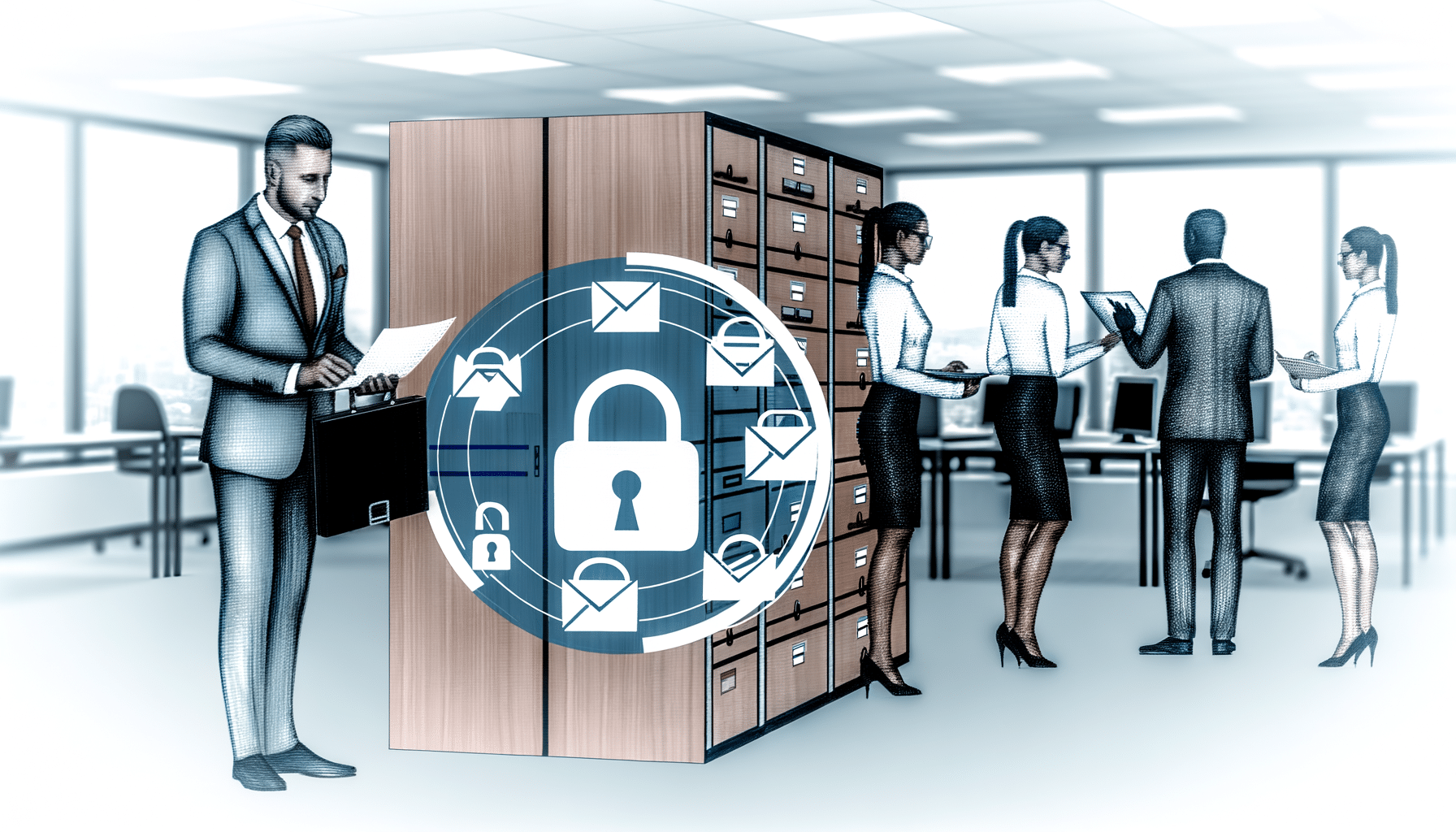- Confidentiality
- August 11, 2023
Best Practices for Managing Confidential Records

As the founder of RecordsKeeper.AI, a platform dedicated to transforming record management, I’ve often encountered organizations grappling with the challenge of managing confidential records effectively. Understanding that the security of sensitive information is paramount, it is crucial to explore the best practices that ensure these records are handled with the utmost care and precision.
Understanding Confidential Records
Before delving into management practices, it’s essential to understand what constitutes confidential records. These records typically include sensitive business information, personal data of clients or employees, and proprietary company data. The ramifications of mishandling such information are severe, ranging from reputational damage to financial penalties. Therefore, robust management practices are not just recommended—they’re imperative.
Automated Categorization for Enhanced Management
One of the most pivotal steps in managing confidential records is the efficient categorization of data. With the advancements in AI, automated categorization is a game-changer. At RecordsKeeper.AI, we employ AI-driven tools that automatically tag and classify records based on predefined criteria. This not only enhances the retrieval process but significantly reduces the margin for error, allowing teams to locate sensitive information promptly when needed, without compromising confidentiality.
Ensuring Controlled Access with Secure Data Rooms
Once your data is categorized, the next step is to manage access effectively. Consider implementing secure data rooms. These are virtual spaces where confidential records can be stored and accessed by authorized personnel only. With features like real-time activity tracking and controlled access permissions, you can ensure that only the personnel with the proper credentials can view or modify sensitive documents.
Compliance as a Bedrock of Management Practices
In today’s regulatory landscape, compliance cannot be overlooked. Regulations such as GDPR, HIPAA, or SOX mandate strict guidelines for managing personal and sensitive data. Automating compliance workflows can greatly assist in fulfilling these regulatory requirements. By using platforms like RecordsKeeper.AI that integrate compliance management, you ensure adherence to necessary standards while structuring your records in an efficient, compliant manner.
Prioritizing Backup & Recovery
The possibility of data loss is a nightmare scenario when handling confidential records. Regular automated backups are not just beneficial but necessary. By maintaining a consistent backup schedule with quick recovery options, organizations can mitigate the risk of losing vital information and thus, protect their confidential records from unforeseen incidents.
Implementing Robust Policy Management
Effective management of confidential records requires stringent policy adherence. Policies concerning data retention and deletion should be clearly defined and enforced automatically. This ensures that records that are no longer needed are disposed of securely, reducing the risk of data breaches.
Ensuring Transparency with Audit Logs & Reports
Keeping detailed records of who accessed what information and when is fundamental to maintaining trust in record management systems. Audit logs and reports provide transparency and facilitate the generation of audit-ready documentation when required. This feature is invaluable not only for internal assessments but also for external regulatory audits.
Integrity Assurance through Blockchain
Blockchain technology offers an extra layer of security when it comes to managing confidential records. By creating tamper-proof, immutable records, blockchain ensures that once data is entered, it cannot be altered without detection. This guarantees the integrity of the records, offering peace of mind that your data remains uncorrupted and authentic.
Final Thoughts
Managing confidential records is not an insurmountable task when armed with the right tools and practices. By incorporating automated categorization, secure data management, compliance automation, regular backups, and blockchain integrity, you can elevate your record management processes. These strategies transform record management from a routine task into a strategic advantage, enabling organizations to achieve security, compliance, and efficiency.
If you’re interested in learning more about how RecordsKeeper.AI can support your record management needs, I invite you to explore our platform. For more insights into the world of entrepreneurship, fundraising, or tech innovation, feel free to follow me for future discussions on these critical topics.
Toshendra Sharma is the visionary founder and CEO of RecordsKeeper.AI, spearheading the fusion of AI and blockchain to redefine enterprise record management. With a groundbreaking approach to solving complex business challenges, Toshendra combines deep expertise in blockchain and artificial intelligence with an acute understanding of enterprise compliance and security needs.
Archives
- December 2024
- November 2024
- October 2024
- September 2024
- August 2024
- July 2024
- June 2024
- May 2024
- April 2024
- March 2024
- February 2024
- January 2024
- December 2023
- November 2023
- October 2023
- September 2023
- August 2023
- July 2023
- June 2023
- May 2023
- April 2023
- March 2023
- February 2023
- January 2023
- December 2022
- November 2022
- October 2022
- September 2022
- March 2019
Want to get more content like this?
Signup to directly get this type of content to your inbox!!
Latest Post
Organizing External Auditor Access
- December 22, 2024
Document Control in Manufacturing Plants
- December 21, 2024
Handling Rush Financial Report Requests
- December 20, 2024
Managing Record Access After Staff Changes
- December 19, 2024





